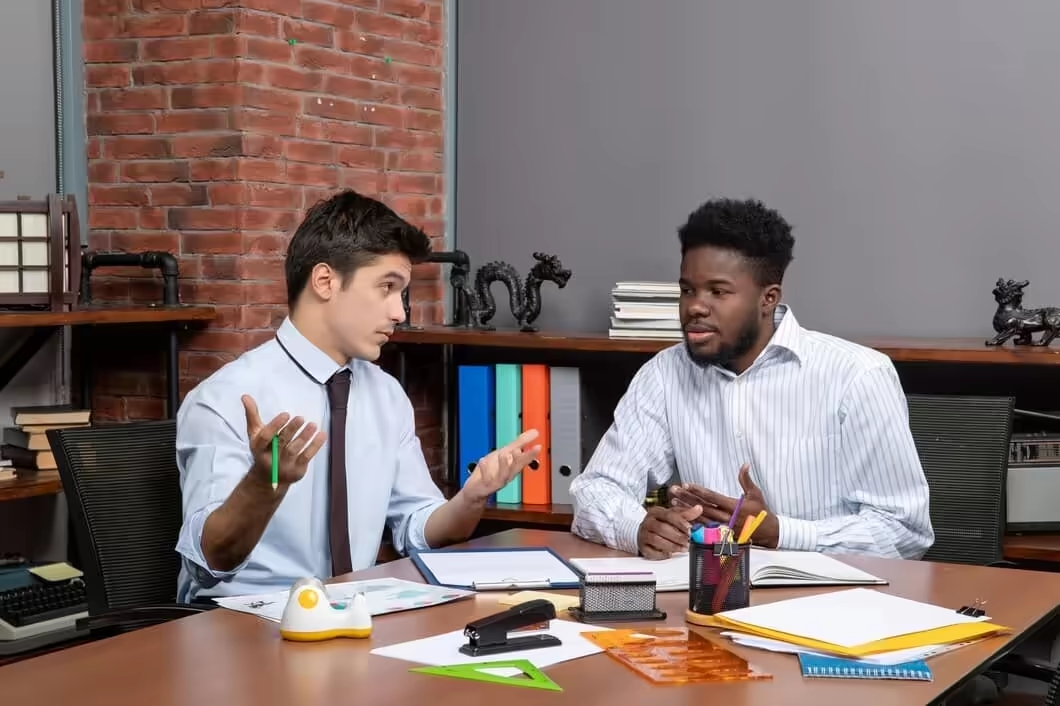Do you want to stay ahead of the game in business but are worried about being accused of plagiarism? Fear not – we’ve got your back! Whether you’re a business student, an experienced entrepreneur looking for a few tips, or just someone who wants to ensure their originality is preserved, this blog post will provide key advice on how to avoid plagiarism in all areas of business. From citing sources accurately to knowing when and why it's best to work collaboratively with others, we have everything you need right here. So grab a cup of coffee before class/work and get ready because this is going to be one informative and witty journey!
Understand the importance of citing sources when using external content in your business projects
Ah, you are citing sources. The bane of every student's existence and the thorn in the side of every businessperson. But let me tell you, my dear reader, citing sources is more important than you may think. Not only does it show that you've done your research and are knowledgeable on the subject, but it also gives credit where credit is due. Plus, it helps avoid any pesky lawsuits or accusations of plagiarism. So the next time you're tempted to skip citing a source in your business project, remember that a little effort now could save you a lot of trouble later.
Know what is considered plagiarism - copying, summarizing, and paraphrasing without giving credit to the original author
Let's face it, plagiarism is like trying to sneak past your parents with an expired curfew. You may think you're getting away with it, but in reality, you're just setting yourself up for a whole lot of trouble. Copying and pasting without giving credit is a big no-no, and summarizing and paraphrasing aren't a hall pass to avoid crediting the original author either. Don't be that person who thinks they're slick by stealing someone else's work. It's not worth the risk of getting caught and facing the consequences. You will thank yourself later for being honest and ethical. Plus, you'll earn way more respect and admiration for being an original thinker.
Use online tools to check your work for plagiarism
Feeling unassured about your work is a lot like trying to navigate through a corn maze blindfolded. You might hit a dead end or two and end up feeling completely lost. Luckily for you, when it comes to checking your work for plagiarism, you've got the ultimate tool at your disposal-- the Online plagiarism checker by Edubirdie. Not only will it save you from the embarrassment of unknowingly submitting copied content, but it'll also make you feel like a detective hot on the trail of any shady sentence in your essay. So go ahead, and give it a try. Your work (and possibly your grade) will thank you for it!
Learn how to properly cite sources and avoid accidentally plagiarizing someone else’s work
So, how do we avoid plagiarism? Here are four tips that will have you citing sources like a pro and keeping your academic reputation squeaky clean.
• Tip number one: don't be lazy. Take the time to properly research and gather all your sources, and then take even more time to indicate where they came from clearly.
• Tip number two: don't copy and paste. Nothing screams "I didn't put in any effort" like copying and pasting entire paragraphs into your paper.
• Tip number three: don't forget about paraphrasing. If you're going to put something in your own words, make sure you're genuinely putting it in your own words.
• Tip number four: don't procrastinate. Last-minute research and citation are a recipe for disaster.
So, follow these tips and you'll be the envy of all your classmates (and the bane of all the plagiarizers).
Always double-check your work for accuracy - make sure all sources are properly cited
As the famous saying goes, "Measure twice, cut once." The same goes for checking and re-checking your work for accuracy. Sure, it may seem tedious at first but think about the repercussions of not double-checking your work. Your boss or professor could be reading a report you wrote, notice that a source isn't properly cited, and then bam - suddenly you're the laughingstock of the office or classroom. Okay, maybe not quite that extreme, but you get the point.
Take the extra time to make sure everything is properly cited, and you'll avoid potential embarrassment and ensure your work is taken seriously. Plus, you'll feel like a boss for being so thorough.
plagiarism checker
Utilize copyright protections such as Creative Commons licenses to ensure proper usage of copyrighted material
Copyright can be a tricky little devil. You put your blood, sweat, and tears into creating something; before you know it, someone else is trying to pass it off as their own. It's like stealing someone's lunch out of the fridge at work - it's just not cool. But fear not! Enter Creative Commons licenses. These babies allow you to protect your hard work while also allowing others to use it in a way that's fair and legal. Plus, it makes you look pretty hip and tech-savvy, which is always a plus.
Related: Check-Plagiarism vs. SmallSEOTools.Com - which one should you prefer?
Conclusion
Plagiarism is a severe offence, and it's important to set an example for yourself and others regarding intellectual honesty. There are plenty of ways to ensure your work is original and properly cited, so make sure you do it!
Author Bio:
Cory Shilling is an experienced academic writing tutor and content creator. With over five years of experience in the industry, Cory has helped hundreds of students achieve academic success. In her spare time, she enjoys reading, baking, and spending time with her family.



